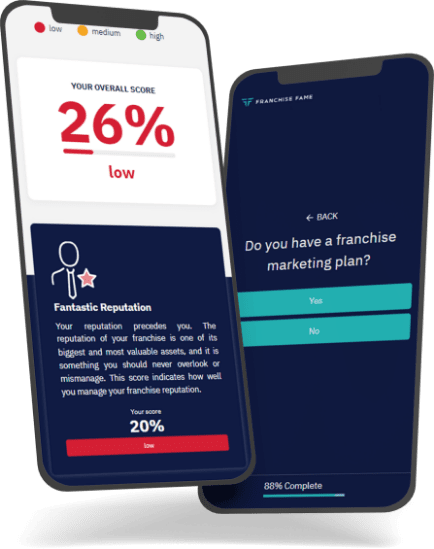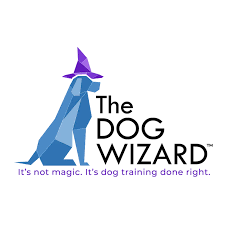Cleaning franchises have proven to be recession-resistant businesses. In 2026, they will remain one of the most stable investments across the US. Entrepreneurs continue to turn to cleaning franchises because they combine scalability, predictable revenue, and growing demand from both residential and commercial clients.
Whether you’re evaluating a janitorial franchise like Jani-King or an eco-friendly brand like EcoMaids, understanding costs, ROI, and emerging trends is essential before buying in. That’s what this post is about, so keep reading to learn more.
In this article:
- Why Cleaning Franchises Still Thrive
- Types of Cleaning Franchise Models
- Cleaning Franchise Startup Costs by Type
- Cleaning Service Franchise Investment by Brand
- ROI and Long-Term Profitability
- The Rise of Green and Sustainable Cleaning
- Regional Cleaning Franchise Opportunities
- Multi-Unit and Scalable Operations
- Franchise Validation and Support
- Conclusion
Why Cleaning Franchises Still Thrive
Despite automation and technology reshaping service industries, cleaning remains a human-driven essential. Businesses, healthcare facilities, and homeowners rely on professional cleaning companies for reliability and compliance with sanitation standards.
Franchise systems like ServiceMaster Clean, Enviro-Master Services, and Buildingstars provide structured models for investors seeking recurring contracts and long-term client retention. These contracts ensure a steady income flow and predictable monthly billing cycles. This is something that few industries can guarantee.

Growth drivers in the cleaning franchise industry
- The US commercial cleaning sector is projected to hit $468.2 billion by 2027, with residential cleaning at $40.3 billion by 2025.
- Dual-income households increase demand for residential cleaning. Meanwhile, urbanization is boosting commercial cleaning needs.
- Over 36,000 franchised cleaning outlets in the US provide steady employment and entrepreneurship opportunities.
Types of Cleaning Franchise Models
Investors and aspiring entrepreneurs can choose among several models, each offering different startup costs and operational demands:
Commercial cleaning and janitorial franchises
Brands such as Jani-King, Corvus Janitorial Systems, and CleanNet focus on office cleaning, warehouse sanitation, and school maintenance. They typically operate on business-to-business (B2B) contracts, delivering recurring revenue.
Residential cleaning and maid services
Franchises like Merry Maids, Maid Brigade, and The Maids specialize in home cleaning, offering recurring weekly or biweekly services.
Niche and green cleaning concepts
EcoMaids and Maid Right focus on eco-friendly cleaning, using biodegradable, non-toxic products. This niche is fast-growing, driven by sustainability trends and consumer demand.
Specialty cleaning franchises
Brands like Spaulding Decon serve unique markets, such as biohazard remediation and post-construction cleanup. These often carry higher margins and lower competition.
Cleaning Franchise Startup Costs by Type
Startup costs range widely depending on size and model. Here’s a brief breakdown to help you see the figures at a glance:
| Franchise Type | Investment Range | Revenue Source | Scalability |
| Home/Maid Services | $25,000–$90,000 | Recurring residential clients | Strong |
| Janitorial/Commercial | $50,000–$250,000 | B2B cleaning contracts | High |
| Green/Eco-Friendly | $40,000–$120,000 | Premium eco services | Moderate |
| Specialty Cleaning | $80,000–$300,000 | Niche markets | Variable |
Some systems, like Corvus Janitorial Systems, are structured for low-cost entry, while others, such as ServiceMaster Clean, attract multi-unit investors who manage teams across several regions.
Cleaning Service Franchise Investment by Brand
Below is a table that lists some leading cleaning service franchise brands by investment, area of focus, and whether they guarantee an established customer base.
| Franchise | Initial Investment | Main Focus | Client Base Guarantee |
| Pink’s Window Services | $9,900 | Window/Restoration | No |
| 360clean | $14,999 | Commercial | Yes |
| Image One | $45,000 | Commercial | Yes |
| The Maids | $77,600 | Residential | No |
| Enviro-Master | $90,670 | Commercial Hygiene | Yes |
| Two Maids | $93,440 | Residential | Yes |
| EcoMaids | $110,989 | Eco-Friendly Home | Yes |
The different cost ranges and service diversity of these brands allow for effective franchise selection based on budget, location, and growth outlook.
ROI and Long-Term Profitability
The franchise return on investment (ROI) for cleaning businesses depends on territory size, staffing, and contract mix. Many owners reach breakeven within the first 12 to 18 months. Gross margins typically range from 25% to 40%, driven by low equipment costs and high customer retention.
The real strength lies in recurring contracts: corporate and institutional clients that renew annually. Franchises like Jani-King and Buildingstars specialize in contract cleaning for offices and healthcare facilities, providing steady cash flow.

The Rise of Green and Sustainable Cleaning
The shift toward sustainable cleaning has become a defining trend for 2025 and the year ahead. Both commercial and residential customers are choosing eco-friendly cleaning franchises that minimize chemical use and reduce waste.
Brands like EcoMaids and Maid Brigade use environmentally safe products and energy-efficient methods. This “green premium” often allows franchisees to charge slightly higher rates while appealing to health-conscious and environmentally aware clients.
Regional Cleaning Franchise Opportunities
Certain states are outperforming others due to strong business growth and urban density.
- California: booming eco-friendly demand and dense corporate clients.
- Florida: strong tourism and residential cleaning demand.
- Texas: rapid business development drives commercial janitorial growth.
- New York: consistent urban office contracts.
These states also host franchise expos and regional networking opportunities for new investors.
Multi-Unit and Scalable Operations
Cleaning systems are among the most scalable franchises in the service sector. Franchisees often start with one unit and expand to manage multiple crews or regions. Franchises such as OpenWorks and Buildingstars are designed for multi-unit growth through tiered ownership structures.
Franchise Validation and Support
Before committing, review the franchise’s Franchise Disclosure Document (FDD) and contact existing owners to assess satisfaction levels. Validation helps verify income claims, support quality, and long-term profitability.
Look for systems that offer:
- Comprehensive training programs
- Territory protection
- Marketing and sales support
- Green certification assistance (where applicable)
These factors significantly improve operational confidence and ROI predictability.
Conclusion
In 2026, cleaning franchises will remain a proven, scalable, and sustainable business opportunity. Whether you prefer a green home-cleaning brand or a commercial janitorial operation, the market continues to grow through recurring contracts, eco-friendly innovation, and expanding demand across every US region.
Explore current opportunities in the US cleaning franchise market to find a model that fits your goals and regional potential.







